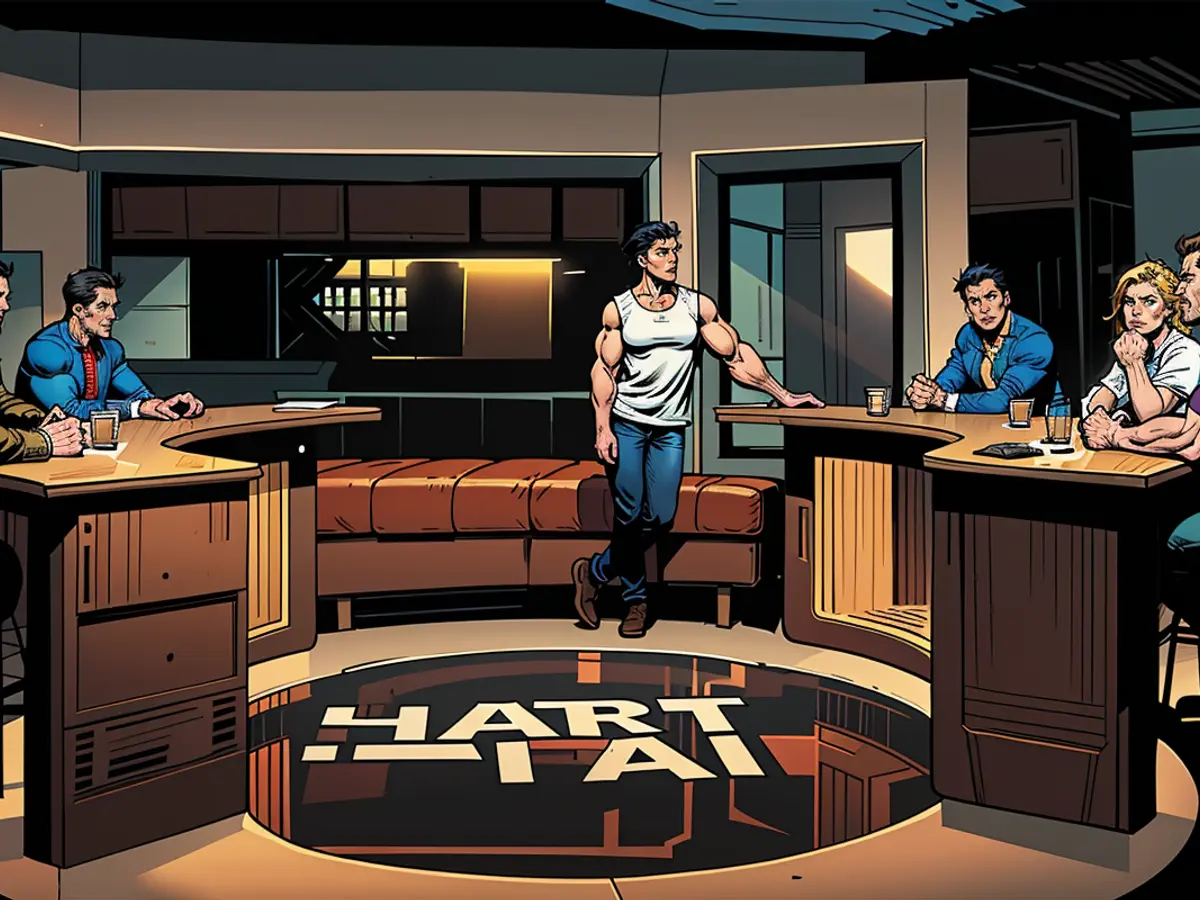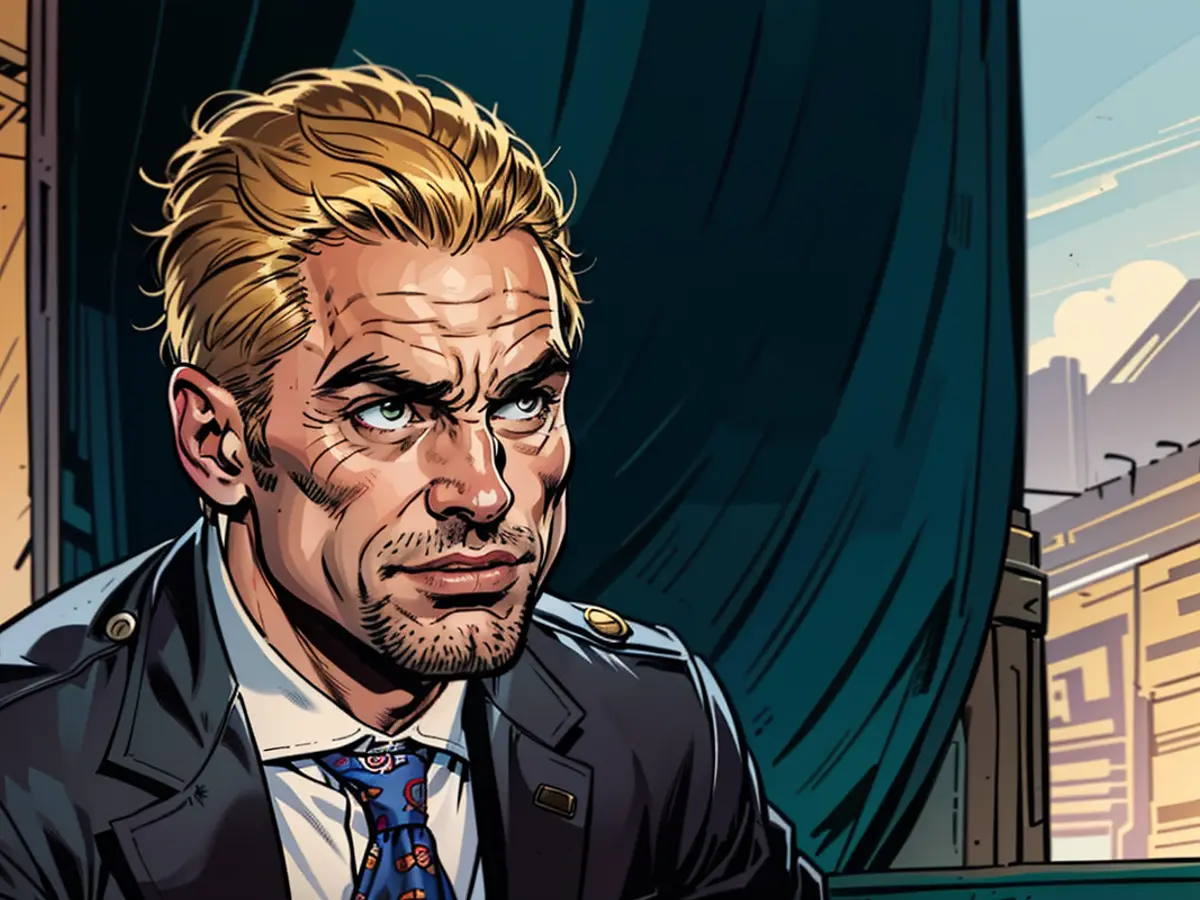Far-right party AfD aims for government, CDU engages in negotiations with other parties.
After the recent state elections, particularly in Thuringia, forming a government has proven to be challenging. On the ARD talk show "Honest but Fair," guests discuss potential coalitions. Despite the CDU struggling with lack of majorities, they maintain a different perspective.
Surprise sweeps the room as the results of the state elections in Saxony and especially Thuringia are revealed. Although polls predicted an AfD victory in Thuringia, the party has surpassed expectations significantly. However, they're missing a coalition partner.
Guests on "Honest but Fair" on Monday night mainly discuss the potential coalitions in Thuringia. The CDU claims the right to the government, yet faces issues. At a 2018 conference, the party made a decision against forming a coalition with the AfD or the Left. For a stable government, the Christian Democrats cannot avoid one of the two parties. Regardless, they wish to adhere to their incompatibility decision.
Beatrix von Storch briefly appears at the beginning of the "Honest but Fair" episode. The AfD opposes the CDU's firewall. To von Storch, Sunday was a remarkable day. "We've experienced a meteoric rise. No one would have anticipated, believed, or desired this," says the politician. She then announces, "We will now seek government responsibility. We see that this is now also very difficult without us." Her statement holds truth as the AfD holds more than a third of the votes in Thuringia and can thus prevent a two-thirds majority. This is essential for altering the state constitution.
Von Storch further explains, "The CDU campaigns with our themes and now wishes to form a coalition with the Left and BSW at the end. That cannot end well, the people will not want that. They have sent a clear signal: They desire a change in politics. And there are clear majorities in Saxony and Thuringia, and they are black and blue."
The fragile coalition
Initially, many experts assumed the CDU would abandon their firewall against the Left on Sunday evening. However, on Monday afternoon, CDU leader Merz denied this. In Thuringia, the only option for the CDU is a coalition with SPD and BSW. Yet, this does not secure a majority. Half of the state parliamentarians would belong to this coalition if it ever materialized.
The BSW presents another obstacle. Although its general secretary, Christian Leye, can picture his party participating in the government, he has a condition: The state government should oppose further arms deliveries to Ukraine and the deployment of American medium- and long-range missiles in Rhineland-Palatinate. "We've always maintained that this is a central point for us," says Leye in "Honest but Fair." Leye further adds, "Two-thirds of the population reject the deployment, likely even more in the east; 43 percent of the population reject additional arms deliveries to Ukraine – likely even more in the east."
Thorsten Frei, the first parliamentary business manager of the Union faction, rejects this idea outright. The CDU will not allow the BSW to dictate foreign and security policy from the sidelines, he states. "We're the party of Western integration. It's clear to us that this deployment of American weapons enhances Germany's security. We also believe that what Putin is doing in Ukraine is not just an attack on a smaller neighboring country, but that it challenges the peace and freedom order in Europe as a whole. Therefore, it's clear that we will not change our foreign and security policy position and will certainly not sacrifice it on the altar of coalition negotiations at the state level."
"Who says it will stay that way?"
"Zeit" author Jana Hensel believes including the Left Party, specifically Bodo Ramelow, in the coalition would be best. "I don't believe you can explain to the people in Thuringia why a man who is Minister President and has personal approval ratings far above all other candidates should not be part of this coalition." Markus Feldenkirchen of "Der Spiegel" agrees and calls the incompatibility resolution "incompatibility nonsense."
However, Thorsten Frei defends it. A myriad of fundamental factors led to the decision not to coalition with the AfD or the Left. For example, the Left aims to introduce socialism. But Frei also offers hope: The decision was made by a federal party conference and could potentially be reversed by one as well. Yet, Frei asserts this is unnecessary: "Today it's 44 to 44. Who says it will actually stay that way? We've had crossovers from the Left to the BSW before."
Neither Frei nor Leye can confirm any planned crossovers, but anything is possible. And hope remains eternal. Markus Feldenkirchen harbors little hope that the planned minority government of CDU, SPD, and BSW will succeed. "My concern is that the choice is: Will Herr Höcke become Minister President now or in five years, because this construction could potentially polarize even more. I hope not. I hope everyone has recognized it. But the danger is very great."
In the "Honest but Fair" discussion, the SPD is mentioned as a potential coalition partner for the CDU in Thuringia, but their alliance may not secure a majority. Despite Thorsten Frei suggesting a potential reversal of the CDU's incompatibility decision, limiting foreign and security policy negotiations with the BSW remains non-negotiable.









